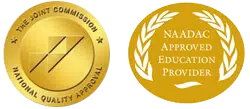For many years, substance abuse has been a topic of debate and often misunderstood. But as research and understanding progress, more and more experts agree: addiction is a disease. Looking at it from this perspective can reshape the way society views substance use disorders (SUDs) and helps those in need.
Why Do People Get Addicted to Drugs?
Many factors can influence addiction, including genetics, environment, and personal history. People often start to use drugs or alcohol to feel good or relieve stress. As this use continues, chemical changes in the brain create an increasing dependency. They struggle to function without it, and this traps the individual in a cycle of addiction.
The Science of Addiction
Research has shown that addiction is more than a result of poor choices or lack of willpower. It is a complex disorder that affects brain function and behavior. Early substance use might be voluntary, but the changes that drugs cause in the brain can affect a person’s self-control. This makes them less able to resist the impulse to take drugs.
Is Addiction a Disease or a Choice?
Using a substance may at first be a choice, but over time, changes in the brain influence the development of addiction. This is often beyond the individual’s control. If we label substance abuse as a choice, it overlooks the impacts of brain chemistry. It discounts the disease nature of the disorder.
The Disease Model of Addiction

The disease model of addiction suggests that it is a chronic and relapsing brain disease. This causes compulsive substance seeking and use. Although there are other theories, this model is crucial. It supports the idea that addicts aren’t making bad decisions, but are dealing with a serious, often long-term disorder.
Models of Addiction
There are various models that explain addiction. These include the moral, psycho-dynamic, personality, temperance, and genetic models. Each model has a unique perspective. For example, the personality model suggests that some people have an “addictive personality.”
The disease model has become the most accepted understanding over time. Most medical associations view addiction as a brain disorder that needs comprehensive treatment. These include the American Medical Association (AMA) and the American Society of Addiction Medicine (ASAM).
Addict Brain vs. Normal Brain

A brain affected by addiction has structural and functional differences from a healthy brain. The differences aren’t temporary, either. They can last long after detox and influence behaviors, emotions, and decision-making. This is why substance use disorders classify as chronic diseases.
How Does Addiction Affect the Brain?
Drugs and alcohol change the brain’s communication system. They interfere with the way neurons send, receive, and process information. With regular use, the brain starts depending on the substance to feel normal.
Substance use causes large surges of dopamine, a chemical released in the brain that makes you feel good. Over time, these surges can change the brain’s structure and how it functions. This is visible in areas that control judgment, decision-making, behavior control, and memory.
How to Break an Addiction

Breaking free from addiction isn’t just about wanting to quit. A comprehensive treatment plan is necessary, and it often begins with detox. Individual therapy, group counseling, and medication can form part of the treatment plan.
Remember, recovery is an ongoing process, and there may be setbacks. At Baystate Recovery Center, we understand these challenges. Our goal is to provide the necessary support and tools to help individuals find their way back to a healthier life.
Addiction Recovery
Recovery is a lifelong journey that often requires continued support. At Baystate, we provide hope when it feels out of reach. Joining our community provides a safe space filled with support and encouragement, which is especially important on challenging days.
Staying engaged in therapy provides consistent guidance, helping individuals navigate challenges and make informed choices. Learning about one’s disease is also empowering. Knowledge equips you to face triggers and avoid potential pitfalls on the path to recovery.
Addiction Treatment Programs
Treatment programs are tailored to suit an individual’s unique needs. Detox is the first step to cleanse the body before treatment can begin. A medically supervised detox helps handle withdrawal symptoms, making the start of sobriety easier. Baystate can provide referrals to treatment centers specializing in drug or alcohol detox near you.
Addiction treatment programs can include a combination of the following:
– Inpatient or outpatient treatment
– Behavioral counseling
– Medication
– Mental health services
– Long-term follow-ups to prevent relapse
The Stigma of Addiction

Even though many people view substance use disorder as a disease, stigma about addiction remains. Stigma is when people judge a certain group unfairly. Some people continue to wrongly view drug or alcohol addiction as a character flaw or moral failing.
Because of these negative or shameful perceptions, many individuals with SUDs avoid seeking the help they require. The National Institute on Drug Abuse (NIDA) states that people with SUDs may become less willing to seek help if they feel judged.
Understanding addiction as a disease can change lives. It can transform public perception and lead to better support systems. This model offers hope and effective treatment for those battling a substance use disorder. At Baystate Recovery Center, we commit to providing the best treatment options for individuals on their path to recovery.
Baystate Recovery Center, a clinically Infused 12-Step Treatment Center for Drug and Alcohol Addiction, was founded by two partners in addiction treatment services, John Checchi and Michael Wilson.



